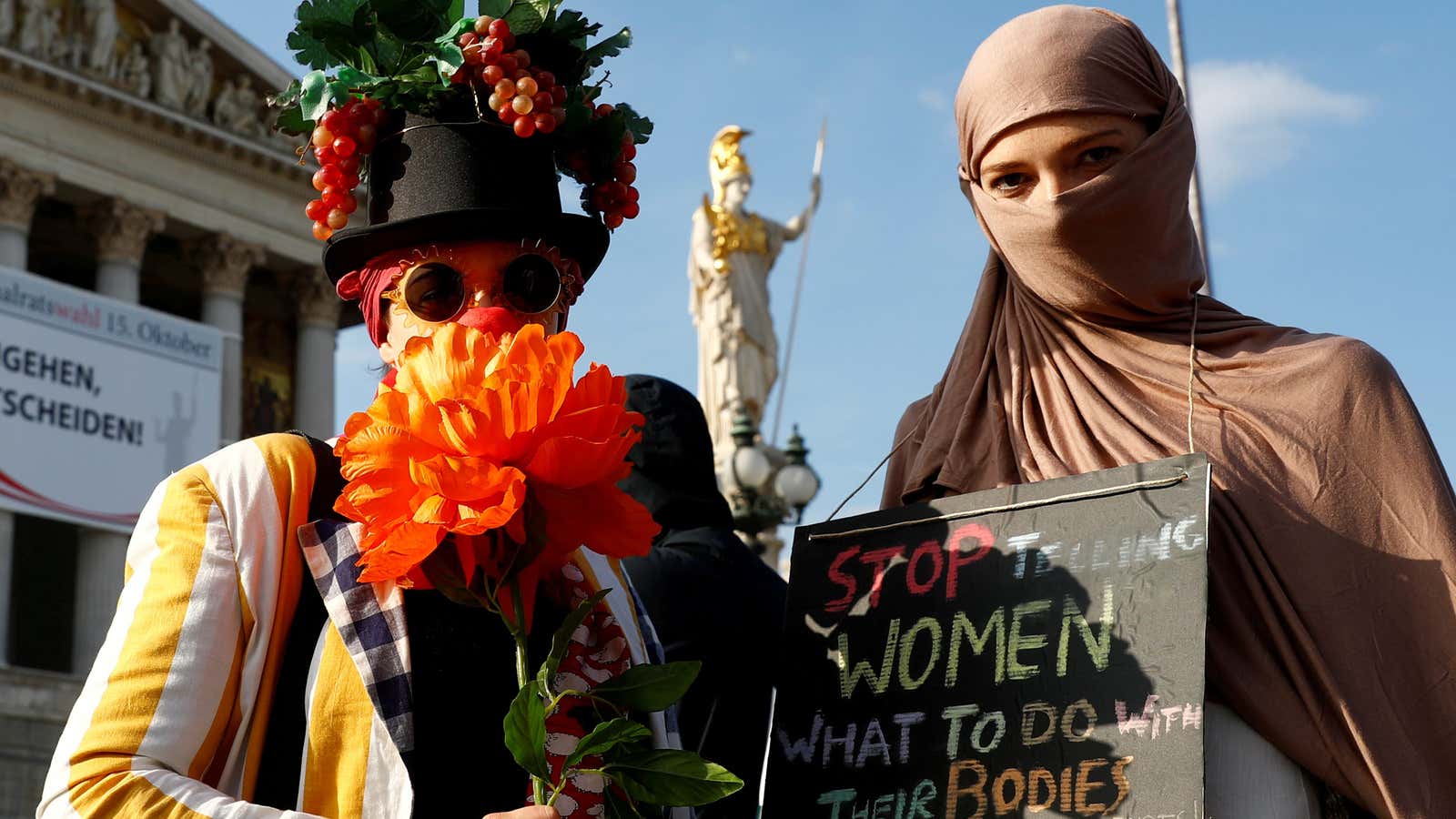France, Austria, Belgium, the Netherlands, Germany, Switzerland: Several countries in Europe have enforced versions of so-called “burqa bans,” or laws that demand people don’t cover their faces in public situations. Though these laws aren’t explicitly phrased to target Muslims, their perceived aim (and hence nickname) is to prevent Muslim women from covering their faces.
Now, the first such law has been passed in North America, too, and in diversity-proud Canada, of all places. On Oct. 18, the National Assembly in Quebec City passed a partial full-face coverage ban that applies to people either working in or receiving services from public institutions funded by the province of Quebec, including universities and public transit. It’s not a blanket ban, but its reach extends broadly: A woman riding a public bus, for instance, or a public university student attending classes, wouldn’t be able to wear a face veil.
Several organizations called the bill Islamophobic, including the National Council of Canadian Muslims. Philippe Couillard, the premier of Quebec, defended the ban thus: “We are just saying that for reasons linked to communication, identification, and safety, public services should be given and received with an open face.”
But Stéphanie Vallée, the minister of justice in Quebec who spearheaded the new law, while also also framing it as a safety matter, pointed out that “this is a bill about le vivre ensemble (living together in harmony), […] it’s a bill about guidelines and clearly establishes the neutrality of the state.” In the Canadian legal system (pdf, p. 170), “state neutrality” refers to the state’s secular nature, necessary to ensure it does not favor a religion over the other.
Indeed, the law includes a number of other measures, such as stopping government subsidies for daycare providers that teach religion. It says that time off for religious reasons should be limited, and should only be allowed for religions and practices that respect the equality of men and women.
In this light, the ban on covering women’s faces appears, contrary to what Couillard says, to be specifically targeting niqabs and burqas, garments that are seen—often rightfully so—as having been forced on women as an oppressive cultural practice.
The problem with the ban should be obvious: It responds to a culture that imposes rules on women by imposing other rules on women. Demanding that a woman remove her veil when on a bus is no different in nature from forcing her to wear that same veil. Further, if you believe veils are a mark of women’s oppression, the ban does not solve the problem, but only makes it invisible to the public—which, if anything, contributes to the oppression continuing.
It’s telling that, even in a proudly multicultural environment such as Canada, and even under the noble goal of ensuring a fair, secular environment, the first casualty is still women’s freedom over their bodies—whatever the attire.
